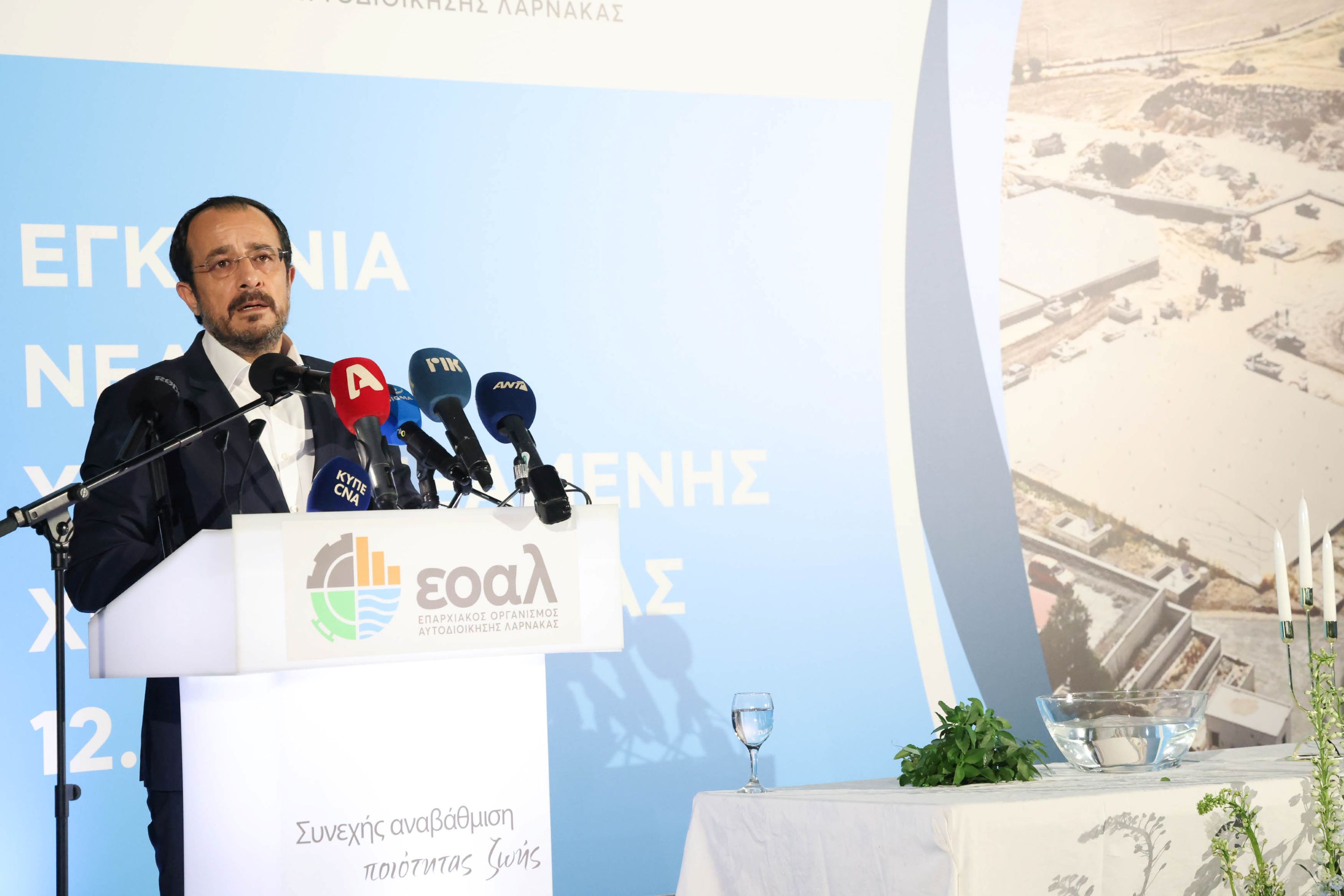Cyprus aims to meet 100 per cent of its water needs independently by installing two permanent desalination units by 2028, President Nikos Christodoulides said on Tuesday.
“The effective treatment of water scarcity and the rational management of water resources are for a matter of utmost importance and a strategic priority for the government,” the President said, speaking at the inauguration of the new water reservoir of the Larnaca local district organisation (EOA).
“According to relevant climate models, the temperature increase in our region is up to twice that of other regions of the planet, while at the same time, average annual rainfall has unfortunately decreased by approximately 10 to 15 per cent since the mid-1990s,” he said.
Referring to the setting up of three further desalination units, which had been agreed upon by the Council of Ministers last Wednesday, he said they would be rolled out by summer 2026 and were predicted to raise the water Cyprus collected from desalination facilities by 32 per cent.
Additionally, studies for the implementation of two permanent destination units, powered by renewable energy would be launched before the end of 2025, he said.
“With the operation of two additional permanent desalination units, our goal is for Cyprus to be able to cover 100 per cent of its water needs by 2028 instead of the current 70 per cent,” he said.
Christodoulides noted that the construction of additional tanks and reservoirs, similar to those in Larnaca, was a of strategic importance for the entire island.
He stressed that Cyprus’ geographical location made it particularly prone to suffer the effects of climate change and emphasised the need for Cyprus to build water resilience in view of longer and more frequent drought periods.
Pointing to projects in Polis Chrysochous and Kokkinokremmos, he emphasised their role in bolstering and safeguarding the water supply on the island, adding that a further 31 water-related projects were scheduled for 2026.
Cyprus dams currently have only 11 per cent of capacity, which has led to sharp criticism of the government’s water management.
In a heated discussion on the matter at the House agriculture committee in late October, Disy MP Kyriacos Hadjiyianni criticised the administration for not taking sufficient action, labelling it a “disability government.”
His comment prompted an angry response from the agriculture ministry’s permanent secretary Andreas Gregoriou, who firmly insisted that Cyprus had “not been left without water.”






Click here to change your cookie preferences